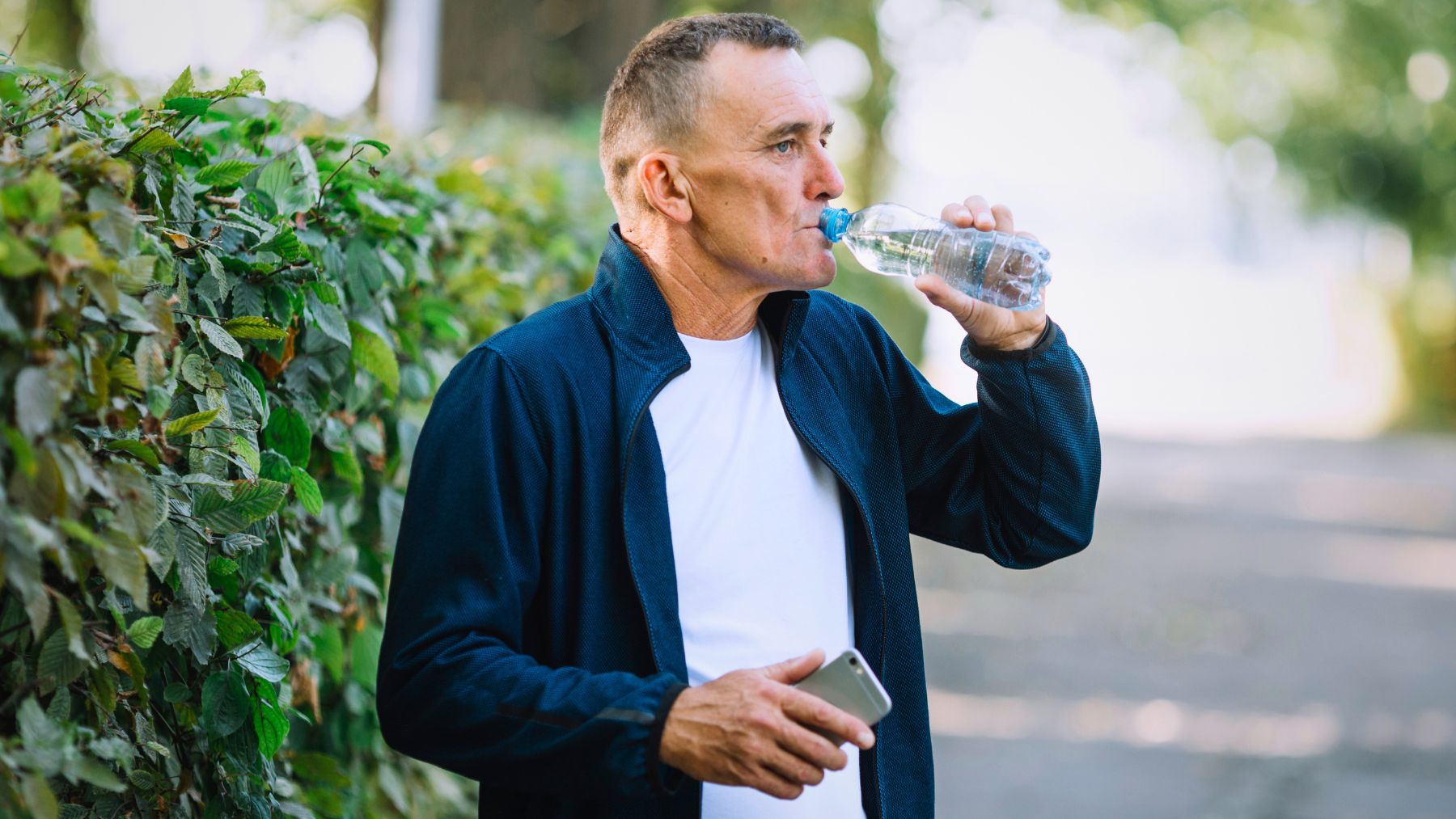The “8 glasses a day” rule is a decent benchmark, but it might not be accurate for older adults. As we age, our bodies change the way they handle hydration. That means the standard advice might not be enough, or could be too much in certain cases. There’s a better way to figure out how much water you should be drinking each day after 65.
Hydration needs vary based on weight, sex, climate, activity level, and health condition. Here, we’ll break down expert guidance on water intake for older adults, including how much is recommended and what factors can shift your needs. We’ll also offer practical tips to help you stay hydrated throughout the day.
How much water do seniors need?
The usual rule of eight 8-ounce cups a day isn’t wrong, but it’s not tailored for age-related changes. According to the National Academies of Sciences, Engineering, and Medicine, men need about 125 ounces of fluid per day, and women need around 91 ounces. That includes both drinks and food. It’s important to note that about 20% of your fluid intake comes from what you eat.
Registered dietitian Crystal Scott points out that this general range may not be right for everyone. Seniors need to consider their environment, medical conditions, and how active they are. If you live somewhere hot, walk or exercise daily, or take medications that increase fluid loss, you’ll likely need more. If you have certain heart or kidney conditions, you may need to drink less.
Age can dull the sensation of thirst, so it’s easier for older adults to get dehydrated without realizing it. That’s why paying attention to your body’s signs—like urine color, energy levels, or headaches—can be more useful than aiming for an exact number. If your urine is pale yellow or nearly clear, you’re probably doing fine. If it’s darker, it may be time to drink.
Tips for seniors to stay hydrated after 65
The key to getting enough water each day is building small habits that add up over time. Take these into consideration:
- Start early: Drink a glass of water first thing in the morning. It sets the tone for the day and helps replace what your body lost overnight.
- Use smaller bottles: Instead of one large container, try using an 8–12 oz bottle and refill it throughout the day. It’s less intimidating and keeps the goal manageable.
- Flavor it naturally: Add lemon, cucumber, or a few slices of fruit to your water if plain isn’t appealing. A mild flavor can make it easier to sip regularly.
- Eat hydrating foods: Foods like cucumbers, oranges, strawberries, and soups all add to your daily intake.
- Set reminders: A simple phone alarm or note on the fridge can prompt you to take a sip every hour or two.
- Watch your meds: Some medications, including diuretics, can increase water loss. Ask your doctor or pharmacist if your prescriptions affect hydration.
Small changes like these can make hydration more sustainable. Staying hydrated can support clearer thinking, better digestion, steadier energy, and healthier skin. The right amount might not be exactly eight glasses, but it’s worth finding what works best for your body.

